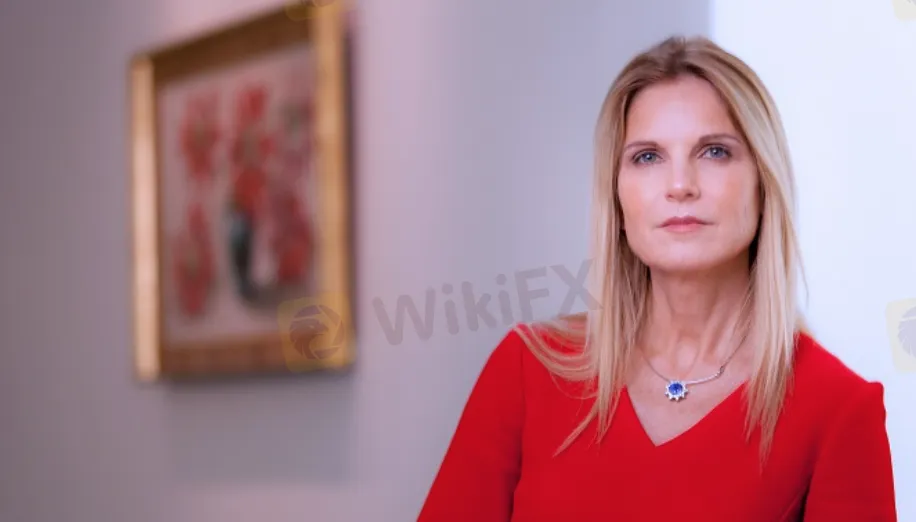简体中文
繁體中文
English
Pусский
日本語
ภาษาไทย
Tiếng Việt
Bahasa Indonesia
Español
हिन्दी
Filippiiniläinen
Français
Deutsch
Português
Türkçe
한국어
العربية
Magda Wierzycka Discussed The Current Investment Climate in South Africa
Abstract:According to Magda Wierzycka, South African investors should always strive to increase their exposure to foreign markets through a diverse portfolio of stocks.
One of South Africa's richest women, Wierzycka is the founder and executive chair of Sygnia Limited, which is listed on the JSE. Speaking at a recent Moneyweb conference, she advised individuals looking to build wealth to diversify their portfolios and consider long-term investments abroad.

Bonds and certain stocks should make up any residual local fund allocations. It was hard to be “enthusiastic,” she continued, about local equities as a long-term investment choice.
You simply need to consider the fundamentals, such as South Africa's economy, which is experiencing stagnation, rising unemployment, and soaring inflation. Our resource firms are under more strain as a result of the growing infrastructural issues, which affect both transportation and power.
To be very honest, I don't see how South African stocks now provide excellent long-term value to investors. Unless a miracle occurs and the ANC uses a magic wand—which they don't have—to solve every issue facing the nation.
According to Wierzycka, she also has exposure to the private investment sector in other countries, particularly startups, providing extra exposure outside of the equities market.
Several reasons to be optimistic:
Although it is challenging to be optimistic about South Africa right now, Hlelo Giyose, chief investment officer of First Avenue Investment Management, said there are still reasons to be optimistic about the nation in the long run.
Even after accounting for inflation and dollar values, he pointed out that South Africa's stock market has been the second-best performing in the whole globe since 1910.
This has occurred in large part due to South Africa's contribution of commodities to global growth. Amazing management firms with a strong emphasis on capital allocation and avoiding overbuilding exist in South Africa, the speaker claimed.
“We are de-industrializing because we are so focused on obtaining returns per dollar-per-rand spent, unlike the Chinese and Japanese management corporations who develop capacity and overstock the market with capital - with manufacturing capacity, with industrial capacity.”
Disclaimer:
The views in this article only represent the author's personal views, and do not constitute investment advice on this platform. This platform does not guarantee the accuracy, completeness and timeliness of the information in the article, and will not be liable for any loss caused by the use of or reliance on the information in the article.
Read more

Why More People Are Trading Online Today?
Discover why online trading is booming with tech, AI, and a push for financial freedom. From stocks to crypto, it’s a thrilling hustle for all.

High Return Traps? WikiFX’s Complete Scam-Busting Handbook to Avoid Financial Fraud!
Financial scams are evolving faster than ever, and fraudsters are getting more creative in luring victims into traps. Whether it’s promising high returns or leveraging authority to build trust, scammers continuously innovate new ways to trick investors. From clone firms to cold calling schemes, it’s essential to understand how these scams work to protect your hard-earned money. This comprehensive guide by WikiFX will help you recognize and avoid common financial scams.

The president of @Liberland, @Vít Jedlička come on stage, dialogue on trading security.
The 2025 WikiEXPO Hong Kong Station is about to grandly open. the president of @Liberland, @Vít Jedlička come on stage, dialogue on trading security.

Countdown: 1 day.WikiEXPO2025's first stop, Hong Kong, is about to open.
⏰ Countdown: 1 day. WikiEXPO2025's first stop, Hong Kong, is just tomorrow. Focus on transaction security and explore new investment opportunities. ???? Get ready to start now. See you tomorrow.
WikiFX Broker
Latest News
How Crypto Trading Transforms FX and CFD Brokerage Industry
UK would not hesitate to retaliate against US tariffs - No 10 sources
FCA Warns Against 10 Unlicensed or Clone Firms
CySEC Warns Against 14 Unlicensed Investment Websites
Top Currency Pairs to Watch for Profit This Week - March 31, 2025
Will natural disasters have an impact on the forex market?
Philippines Deports 29 Indonesians Linked to Online Scam Syndicate in Manila
Navigating the Intersection of Forex Markets, AI Technology, and Fintech
Exposed: Deceptive World of Fake Trading Gurus – Don’t Get Fooled!
AI-Powered Strategies to Improve Profits in Forex Trading
Currency Calculator







